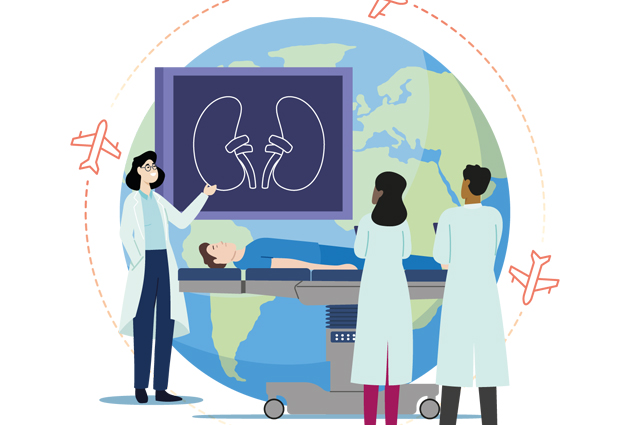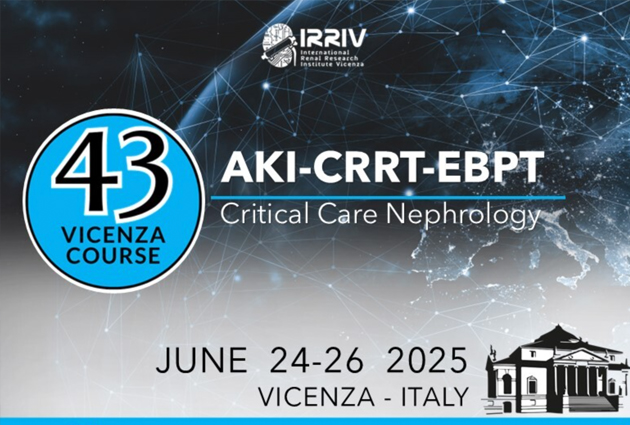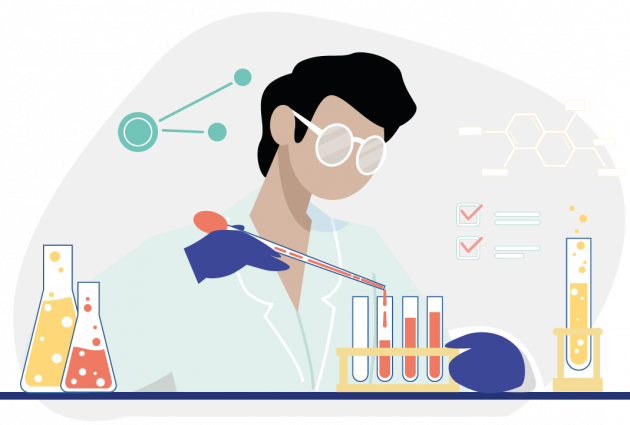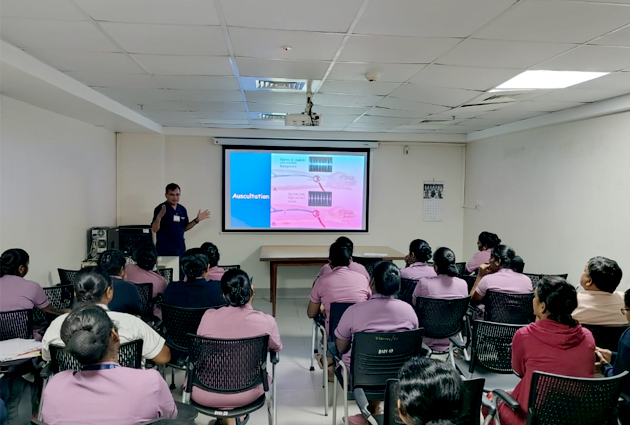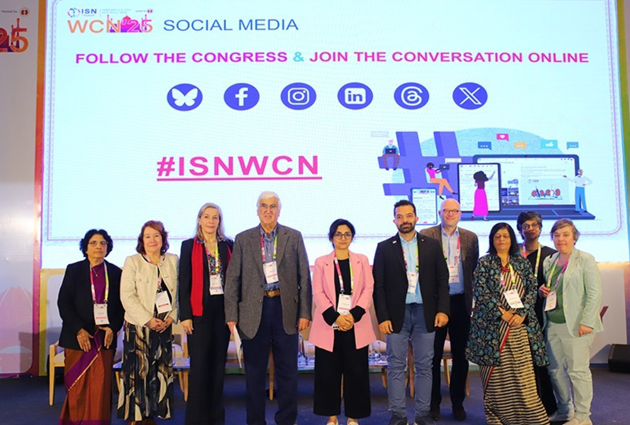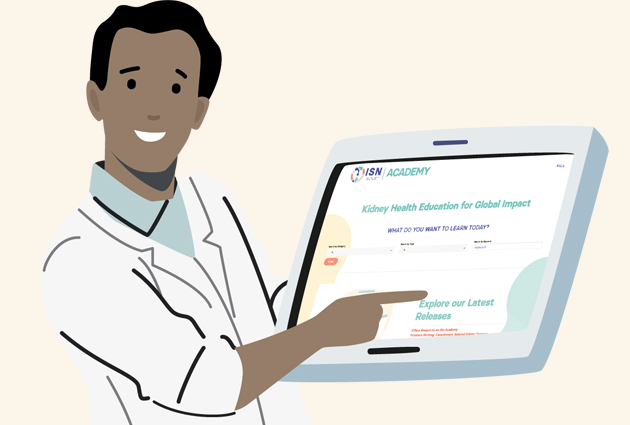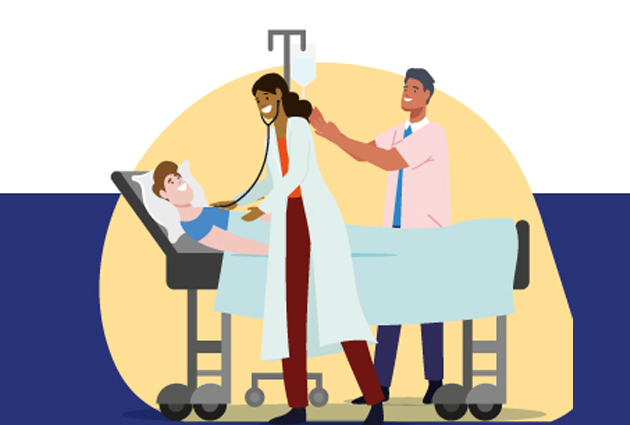ISN Advocacy Newsletter – Bridging the Gaps – June 2022
Discover the Latest ISN Advocacy Initiatives in ‘Bridging the Gaps’: ISN participation at the 75th World Health Assembly, and More

Welcome members and allies to Bridging the Gaps, the ISN’s quarterly update on how we advocate and collaborate with patients and partners to address the global burden of kidney disease.
I am writing to you at the end of another extremely productive quarter where our efforts to bridge the gaps in available kidney care were truly global in nature.
Thanks to your support, the 2022 World Kidney Day campaign – Kidney Health for All: Bridge the knowledge gap to better kidney care – reached over 526 million people on social media in over 10 languages and facilitated over 1300 events in 93 countries.
Building on the success of the 2022 theme, we are hopeful that the launch of the 2023 campaign – Kidney Health for All – Preparing for the unexpected, supporting the vulnerable! – will play an even greater role in raising awareness of the importance of our kidneys to our overall health in these challenging times.
We were privileged to attend the World Health Assembly in person and submit official statements calling for member states to prioritize kidney disease and other circulatory conditions in their preparedness, response, readiness, and coordination planning; and to help achieve the 2030 UHC and SDG targets by delivering people-centered, impactful NCD prevention and health promotion services.
As we know, this will be challenging; despite over 850 million people worldwide living with some form of kidney disease, it is still the “silent killer” and is relatively absent from both political and public discourse.
Efforts to change this narrative and deliver a future where everybody has equitable access to sustainable kidney health will not be easy but can be achieved in cooperation with partners like yourself.
The ISN’s Advocacy Director, Paul Laffin, is available to discuss how best we can do this; please do reach out to him.

Agnes Fogo
ISN President
The ISN attended the 75th World Health Assembly (WHA) in Geneva from May 22 to 28, 2022, where delegates met in person for the first time since the COVID-19 pandemic began.
Working alongside partners in the Global Coalition of Circulatory Health, the ISN co-signed two separate constituency statements calling on Member States to prioritize kidney disease and circulatory conditions in national COVID-19 response and recovery plans and to prevent and control non-communicable diseases (NCDs) at all levels and at all times through pandemic and conflict.
In addition, the ISN submitted a unilateral statement reiterating these petitions and calling for increased public knowledge of kidney disease prevalence, comorbidities, and risk factors, and the need for priority vaccination for kidney patients.
With the COVID-19 pandemic significantly impacting people with kidney disease and other NCDs, the ISN and its partners urged the Member States to prioritize these patients in national preparedness, response, readiness, and coordination planning, emphasizing the need to involve experienced personnel in the development of health services. The ISN also held discussions with several Member States to discuss government engagement and propose strategies for prioritizing kidney patients in health emergency planning.
The 75th WHA adopted the proposed resolution on the prevention and control of NCDs and approved a global implementation roadmap to accelerate action on NCDs.
Paving the way for these results, the ISN had previously submitted a statement calling for the prioritization of kidney disease and other circulatory conditions in national preparedness and response planning at a preparatory meeting of the 75th WHA. The appeal was made on behalf of kidney patients worldwide still experiencing disproportionate physical, psychological and financial effects due to the COVID-19 pandemic.
The ISN will continue to build on these advances to help make health systems more resilient and achieve SDG 3.4 by raising awareness of kidney diseases and other NCDs at global and national levels during conflicts and health emergencies.
The WKD 2022 campaign focusing on increasing education and awareness of kidney health at all levels of kidney care will shortly come to an end. The recently published 2022 impact report presents more than 1,300 WKD activities held in over 90 countries to raise kidney health awareness.
The WKD campaign continues to grow in impact thanks to dedicated efforts from members of the public and health care professionals worldwide, with over 526 million people on social media reached through #worldkidneyday and related messages.
Other outstanding achievements from the 2022 campaign include:
- The #ShowYourKidneys challenge – reaching 12.4 million people online and on social media
- The WKD toolkit – downloaded over 6,000 times
- Media coverage of the campaign in more than 29 countries, with the WKD 2022 scientific editorial published in more than 20 journals
The Champions’ regional reports present accounts from some of the 136 committed champions from 65 countries who boosted the campaign’s impact through fun activities, generating political momentum and media coverage.
The ISN thanks everyone who participated in the 2022 WKD campaign.
Join us for WKD 2023 on March 9!
Looking ahead, the 2023 WKD theme, a timely call to action, was officially announced at the end of May: “Kidney Health for All – Preparing for the unexpected, supporting the vulnerable!”
Stay tuned for updates on the campaign’s launch in September.
“Global Kidney Policy Forum 2022: Building Healthier Sustainable Communities to Safeguard Kidney Health” summarizes the principal kidney-related challenges affecting the ISN Oceania and South-East Asia region and provides concrete proposals to deliver best-practice kidney care, as outlined by speakers at the Global Kidney Policy Forum (GKPF’22).
The ISN hosted the GKPF’22 in February as part of the World Congress of Nephrology (WCN’22). The meeting brought key decision-makers and stakeholders together to address the burden of kidney diseases and discuss policies to improve their prevention and management. Key speakers included Dr. Slim Slama, unit head of the WHO’s NCD Department, Dr. Ong Loke Meng, national head of Nephrology Service for the Ministry of Health Malaysia, Dr. Amrish Krishnan, a nephrologist at Fiji’s Colonial War Memorial Hospital, and Mr. Manvir Victor, kidney patient advocate.
The ISN will be working with partners in the region to motivate policymakers and politicians to become agents of change in delivering equitable access to kidney care, stressing the importance of continued commitment to the adherence to and advancement of the 12 Recommendations to Global Kidney Health to improve kidney care.
The emphasis will be on translating the forum’s recommendations into reality to address the significant variations in the accessibility, affordability, and quality of care throughout the region in line with Dr. Amrish Krishnan’s powerful call to action during the forum that: “The sustainability of any health program depends on multiple stakeholders. These include the role of government and its commitment to funding and infrastructure development, the perception and compliance of the end- users, the patients, and the role of non-governmental organizations. But the most important ingredient to a sustainable health service is the commitment and dedication of its health champions.”
Mr. Joab Wako (Kenya), a kidney transplant recipient and member of the ISN’s Patient Liaison Advisory Group, took part in the World Health Organization (WHO) Informal Consultation with People Living with NCDs (PLWNCDs) and Mental Health Conditions (MHCs) in the African Region. His attendance provided representation for people living with kidney diseaseand highlighted kidney health on the international health agenda.
Organized to support the co-creation and co-development of a “Framework for Meaningful Engagement of PLWNCDs and MHCs,” the event provided a platform for patients like Mr. Wako to guide WHO and Member States in co-designing NCD and MH policies, programs, and principles in close synergy with those with lived experience.
Attending a mixture of presentations, discussions and breakout sessions, Mr. Wako connected with PLWNCDs and MHCs, including individuals with psychosocial disabilities, across the African Region, exchanging valuable knowledge and expertise that the ISN will employ and build on in future work.
The ISN considers patient participation in healthcare-related decision-making essential in shaping effective healthcare systems, firmly supporting WHO’s 1978 Alma Ata Declaration that “people have the right and duty to participate individually and collectively in the planning and implementation of their health care.” As such, in November 2021, we launched the Patient Liaison Advisory Group, of which Mr. Wako is the representative for the African region, to help give kidney patient voices a prominent role in designing and implementing the policies that directly affect their lives.
Appreciating the WHO’s concrete steps toward making the voices of PLWNCDs and MHCs heard, Mr. Wako and the ISN fully supported the emphasis on the need to recognize lived experience as complementary expertise to doctors and experts and the guarantee to integrate mental health services into NCD treatments.
Equally noteworthy was the suggestion to learn from the HIV/AIDS movement in dealing with stigma and discrimination to reduce the burden of kidney disease and other chronic conditions, as pointed out by Dr. Akpaka.
The ISN will continue working alongside the WHO and kidney patients to secure an effective inclusion of their voices and needs in the design and implementation of health policies at national and international levels.
The ISN’s partner, the European Kidney Health Alliance (EKHA), alongside the MEP Group for Kidney Health, held its annual European Kidney Forum on June 15, bringing together high-level stakeholders to discuss concrete policies to benefit people living with kidney disease throughout Europe.
“The Decade of the Kidney™: 10 years to bring innovative and green treatments to kidney patients in Europe” was organized as part of EKHA’s Decade of the Kidney™ campaign. Discussions focused on identifying challenges with current kidney disease treatments from a patient, societal and environmental perspective and exploring ways to facilitate innovation.
With thought-provoking input from European patients, policymakers, healthcare professionals and scientists, the forum highlighted the association between current treatments for kidney patients and environmental pollution, accentuating the active role the European Union can play to scale up green innovation in kidney disease treatments over the next ten years.
The ISN was pleased to hear contributions from key speakers MEP Hilde Vautmans and MEP Jutta Paulus, chair and member of the MEP Group for Kidney Health. Inspiring examples and success stories from the United States with US policymakers and patients were also welcome, notably a testimony from Emily Petrides, vice-president of the European Kidney Patients’ Federation, on her experience as a kidney patient.
With momentum building at the EU level, the ISN is committed to working alongside the EKHA to help develop forward-looking policy solutions to improve the lives of people suffering from kidney disease and overcome the environmental challenges involved in providing care.
The ISN participated in an exchange on non-communicable diseases (NCDs) and cancer organized by the World Health Organization (WHO) Representation Office to the EU, held at its headquarters in Brussels on May 17, 2022.
ISN representatives made an urgent call to the WHO to include kidney disease detection in Appendix 3 of the WHO Global NCD Action Plan and to recognize CKD as a major health burden for patients and society. The appeal was made to an audience of high-level WHO personnel, including Oxana Domenti, WHO representative to the EU, Dr. Bente Mikkelsen, director of the WHO NCDs Department, and Dr. Nino Berdzuli, director of the WHO/EURO Country Health Programmes Division.
The ISN welcomed the WHO’s expression of interest to work together on a kidney disease stand-alone framework. CKD is generally considered in association with other diseases, mainly diabetes and cardiovascular disease, and access to cost-effective treatment options is still not currently available in all EU Member States.
We will continue collaborating alongside the WHO and its member states to help develop timely and effective policy solutions to help improve the lives of kidney disease patients throughout the world, with a special focus on the least developed countries.



